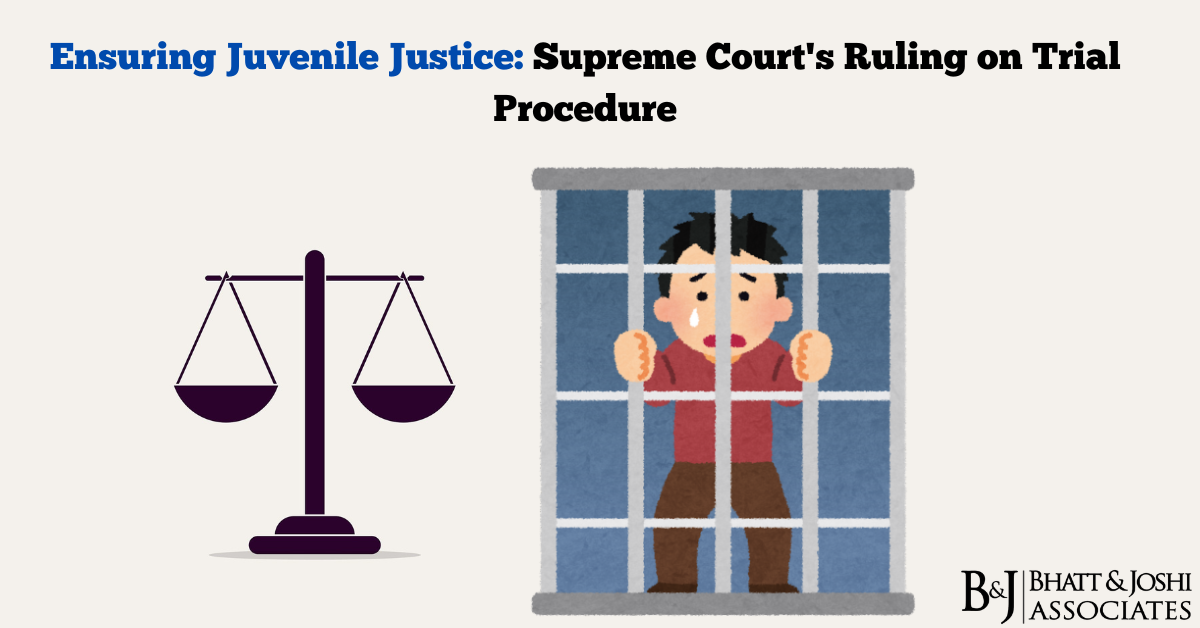Introduction: Upholding Fairness and Legal Procedures
The recent ruling by the Supreme Court regarding the trial of juvenile accused under the Juvenile Justice Act, 2015, underscores the importance of adhering to legal procedures and safeguarding the rights of children in conflict with the law. This analysis delves into the Court’s decision, highlighting the significance of preliminary assessments and adherence to statutory requirements in determining the trial process for juvenile offenders.
Mandatory Assessments: Safeguarding Rights Within Juvenile Justice
The Supreme Court emphasized the mandatory nature of preliminary assessments under Sections 15 and 19 of the Juvenile Justice Act. These assessments play a crucial role in determining the physical and mental capacity of juvenile offenders to understand the gravity of their actions and participate in legal proceedings. By requiring such assessments, the law seeks to ensure fair treatment and appropriate intervention for children involved in criminal activities.
Violation of Legal Requirements: A Case Study
In the case under review, the Court identified a flagrant violation of statutory requirements in the trial proceedings against the juvenile accused. Despite being a child in conflict with the law at the time of the offence, the accused was subjected to trial proceedings without the necessary preliminary assessment by the Juvenile Justice Board. This violation raised serious concerns about the fairness and legality of the trial process.
Judicial Oversight: Correcting Legal Irregularities
The Supreme Court’s intervention was prompted by the appellant’s plea, highlighting the procedural irregularities in the trial proceedings. The Court recognized the fundamental importance of adherence to legal requirements in safeguarding the rights of juvenile offenders. By quashing the impugned judgment and directing the release of the appellant, the Court sought to rectify the legal irregularities and uphold the principles of Justice for minors.
Statutory Mandate: Role of Juvenile Justice Board
Central to the Court’s ruling was the role of the Juvenile Justice Board in conducting preliminary assessments of juvenile offenders. Section 15 of the Juvenile Justice Act mandates the Board to assess the mental and physical capacity of juvenile offenders and determine the appropriate course of action. The Court underscored the importance of this assessment in ensuring fair and equitable treatment for juvenile offenders within the criminal justice system.
Procedural Compliance: Upholding Legal Principles in Juvenile Justice
The Supreme Court reiterated the necessity of procedural compliance with statutory provisions while trying juvenile offenders. Sections 15 and 19 of the Juvenile Justice Act provide a clear framework for the trial process, including the requirement for preliminary assessments by the Juvenile Justice Board. By emphasizing the importance of adherence to legal principles, the Court sought to prevent miscarriages of justice and protect the rights of juvenile offenders.
Legal Precedent: Guiding Judicial Decisions
In its ruling, the Supreme Court relied on established legal precedent, including its own judgment in Ajeet Gurjar v. State of Madhya Pradesh. This precedent emphasizes the mandatory nature of preliminary assessments and underscores the importance of following statutory procedures in Minor justice cases. By adhering to legal precedent, the Court reaffirmed its commitment to upholding the rule of law and ensuring justice for all.
Conclusion: Upholding Juvenile Rights and Legal Integrity
In conclusion, the Supreme Court’s ruling highlights the importance of procedural fairness and adherence to statutory requirements in the trial of juvenile offenders. By emphasizing the necessity of preliminary assessments and statutory compliance, the Court sought to uphold the principles of juvenile justice and protect the rights of children in conflict with the law. This ruling serves as a reminder of the judiciary’s commitment to fairness, legality, and the protection of vulnerable individuals within the criminal justice system.














